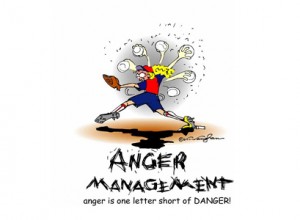
WINTALITY 302: Forgoing your own desires
[Wintality] – win-tal-i-ty – noun; The act of mentally forgoing your own desire to feel better for the betterment of the team. “She was devastated internally after striking out, but her wintality kept her from showing it.”
I’m going to start out with a question for you:
You are up to bat in an important situation and you don’t come through – or – during an important play in the field and you make an error. How do you respond?
 If you are like most players you draw more attention to yourself by showing your anger with what you just did. Kick dirt. Call yourself an idiot. Curse. Throw your helmet. Throw your glove down. I’ve seen it a million times but I’ve always wondered is why. They know they end up playing worse afterwards, and yet they do it anyway. I think I’ve finally figured out the answer this weekend while I was watching a team go downwards in a spiral. You know what I’m talking about, 1 mistake that leads to 5 more.
If you are like most players you draw more attention to yourself by showing your anger with what you just did. Kick dirt. Call yourself an idiot. Curse. Throw your helmet. Throw your glove down. I’ve seen it a million times but I’ve always wondered is why. They know they end up playing worse afterwards, and yet they do it anyway. I think I’ve finally figured out the answer this weekend while I was watching a team go downwards in a spiral. You know what I’m talking about, 1 mistake that leads to 5 more.
I think the answer lies in the players desire to beat themselves up before others do. I think that starts in childhood. If a child is remorseful and acts upset their punishment is generally always lighter. After all, the goal of punishing is to help children understand what they did was wrong. So if they clearly demonstrate that they understand what they did was wrong, then why punish them?
But when they act like they didn’t do anything wrong, or don’t say they are sorry then they need drastically punished. Imagine that a player drops an easy fly ball and they just start smiling and get back to their position. What would you think of them? Aren’t they at least supposed to say “I’m sorry” or “my bad.” Do they even care whether we win or lose?
But my question is why? Why should they, or you, ever have to apologize on the field of play? If all of you are practicing with everything that you have, and doing everything you can to prepare then does anyone really need to apologize for making an error or not delivering at the plate?
In my book the answer is emphatically no. In my book the apology or self defeating behaviors after mistakes aren’t really intended to help the team, they are intended to try and avoid what the player assumes is coming because it’s what they think of others. What’s funny is that the same behaviors are usually occurring off the field by the parents, usually with the same level of drama: “Poor thing she is such a perfectionist, she gets so frustrated with herself when she lets her team down.” If parents get that in first, then who can really say anything negative about the error or the negative behavior of the child.
The problem is that for a team to succeed. I mean really succeed, each player better be focused on what they have to do so that they can contribute. That’s kind of the definition of a team, individuals each contributing together to the best of their ability. At the point you ask 11 other individuals to focus on you and how mad you are at yourself, then you’ve stopped being a team. A team needs to be comprised of players that focus on how they can help others the second their turn is over, and not comprised of players that are self centered and focused on what they didn’t achieve. So back to you… If you are in an environment where you feel like you have to apologize then help break that cycle. If a teammate makes an error, immediately fill in the pause in their head with something like “wow that was some wicked hop girl because I’ve seen you make a million plays like that before, I know you got the next one.” Or “Whew that wind is vicious today because you’ve been running like a gazelle all day I can’t believe even you couldn’t get there for that one.” If you set the tone that you know they are prepared, that you know they are giving all they have, that you know they want to contribute then they don’t have to take any kind of action to try and prove it to you. As you begin on this path you will see how much better others perform when they don’t beat themselves up, and how much better the team does as a result. If you then want to actually take some of that advice yourself and stop apologizing so that the team can focus on themselves instead of on you, well that will probably work to.
